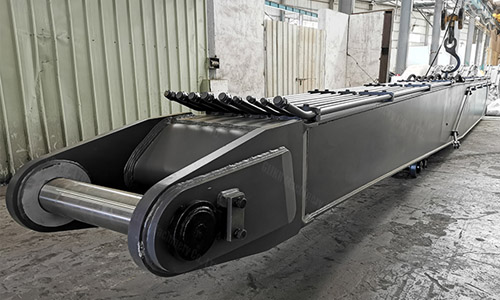Purchasing an excavator is a significant investment, and selecting the right one for your specific needs is crucial. Excavators are versatile machines used in various industries, including construction, agriculture, and mining. This purchasing guide will help you make an informed decision when buying an excavator.
Define Your Needs:The first step in buying an excavator is to determine your specific requirements. Consider the size and type of jobs you'll be performing, the depth and reach required, and the type of terrain you'll be working on. Excavators come in various sizes, from mini excavators to large, heavy-duty models, so it's important to match the machine to the tasks you'll be handling.
Excavator Types:There are several types of excavators, each designed for different tasks:
Standard Excavators: These versatile machines are suitable for general excavation work, such as digging trenches, grading, and foundation work.
Mini Excavators: Compact and maneuverable, mini excavators are ideal for working in tight spaces like urban construction sites or landscaping projects.

Demolition High Reach Arm and Boom
Long-Reach Excavators: These models have extended booms and are excellent for deep digging, dredging, or working in areas with limited access.
Wheeled Excavators: Equipped with wheels instead of tracks, these machines are more mobile on roads and are often used in urban environments.
Crawler Excavators: These are equipped with tracks for stability and traction on rough terrain, making them ideal for off-road and heavy-duty tasks.
Operating Weight and Size:The excavator's size and weight are determined by its specifications, including operating weight, bucket capacity, and reach. Ensure the excavator you choose can handle your specific job requirements. Smaller excavators are more maneuverable and cost-effective for lighter tasks, while larger machines are suitable for heavy excavation and earthmoving projects.
Engine Power:The excavator's engine power affects its digging and lifting capabilities. Consider the engine's horsepower and torque to ensure it can handle your workload efficiently. Opt for a machine with sufficient power to complete your tasks without straining the engine.
Bucket Attachments:Excavators are equipped with different bucket types, such as digging buckets, grading buckets, and specialized attachments like rock breakers and grapples. Depending on your needs, select an excavator that can accommodate the necessary bucket attachments for your projects.
Hydraulics and Controls:The hydraulic system and control mechanisms of an excavator are critical for smooth and precise operation. Look for a machine with responsive hydraulic controls that allow you to manipulate the boom, arm, and bucket with ease. Advanced hydraulic systems can improve efficiency and reduce operator fatigue.
Cab Comfort and Visibility:Operator comfort is essential for productivity and safety. A well-designed cab with ergonomic controls, adjustable seats, air conditioning, and good visibility ensures a more comfortable working environment. A spacious, well-ventilated cab with excellent sightlines is especially important for long hours on the job.
Maintenance and Serviceability:An easily maintainable excavator can reduce downtime and maintenance costs. Check for features like easily accessible service points, quick-change systems for attachments, and user-friendly diagnostic tools. A well-designed machine can simplify routine maintenance and repairs.
Fuel Efficiency and Emissions:Consider the excavator's fuel efficiency and emissions to minimize operating costs and environmental impact. Many modern excavators are designed to meet stringent emissions standards while still delivering impressive fuel efficiency. Look for models with advanced engine technology for cleaner and more economical operation.
Dealer Support and Warranty:Choose a reputable dealer with a track record of providing excellent service and support. Warranty coverage is also essential, as it can save you money on repairs and maintenance in the long run. Research the dealer's reputation, customer reviews, and warranty terms before making a purchase.
Budget and Financing:Determine your budget for the excavator and explore financing options if necessary. Keep in mind that while it's important to stay within budget, it's equally crucial to choose a machine that meets your requirements and provides long-term value.
In conclusion, purchasing an excavator requires careful consideration of your specific needs, the type of work you'll be doing, and the machine's specifications. Research different models, compare features, and consider the reputation of the manufacturer and dealer. Making an informed decision will ensure that you invest in an excavator that enhances your productivity and meets your long-term goals.